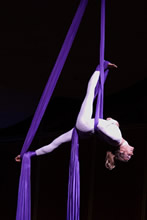For the past nineteen years, St. Matthias Episcopal Church has presented concerts for the broader community on the first Sunday of each month. When the series was first established by Music Director Ron Lambe, it was the “only game in town.” In recent years, many other sponsoring organizations have decided on Sunday afternoons as a good time to present music but despite the growing competition, “First Sundays at St. Matthias” continues to draw substantial and loyal audiences, in part due to the excellent acoustics of the historic church.
The concert on Sunday, December 6, was attended by about fifty persons and featured the Pyramid Brass Quintet: Herb Wolf and Bill Shank on trumpets, Bryan Graeber on horn, Keith Poole on trombone, and Zach Taylor on tuba. (The performer biographies can be read here.) The musicians donated their services, as do all the professional and talented amateur musicians who perform on this series. (The proceeds of all concerts are used to preserve and renovate the historic church.) The program began with a rousing transcription of “When the Saints Go Marching In,” which set the stage for a festive concert.
The repertoire for brass quintet is extensive, but primarily consists of transcriptions of works originally written for other instruments or vocalists. But when a talented brass player composes an original work for quintet, his deep knowledge of the capabilities of the instruments can lead to impressive results. Such an original work is the Australian Folk Song Suite written in 1988 by the Australian trumpet player Robert Sims. The composer’s website tells us that “the piece is a collage of well known Australian folk songs written in a lyrical style but also aiming to explore the technical brilliance of each player.” Sunday was my first hearing of the nine-minute piece. Level of difficulty – 9. Listening later to a superb recording by the Melbourne Brass Ensemble, I noticed that the Australian ensemble used double tonguing in a few places that the Pyramid Brass Quintet had apparently simplified. Even with a few virtuoso flourishes omitted, this was the most impressive performance of the afternoon. It is a lovely work.
Another original work was John Cheetham’s Scherzo for Brass Quintet. This mixed-meter piece (mostly 2/4 but with measures of 3/4 and 3/8 interspersed) gave the Pyramid Quintet an opportunity to show its excellent technical ability and fine articulation.
The concert also presented transcriptions of old favorites such as the Brahms’ “Lullaby” and the middle theme (“I’m Always Chasing Rainbows”) from Chopin’s Fantasie-Impromptu. In both of these pieces, flugelhorn replaced first trumpet in order to provide a mellow tone for these dreamy themes.
The one-hour program finished with Christmas favorites arranged for brass quintet: “Jingle Bell Rock,” Mel Tormé’s famous “Christmas Song” arranged by Luther Henderson (flugelhorn used effectively here also), “Winter Wonderland,” “We Wish You a Merry Christmas,” and an encore of “Let it Snow” in a very jazzy arrangement.
Throughout the concert, the chosen arrangements were of uniformly high quality and showed good musical taste. The quintet showed comfort in their ensemble, and blended well throughout. Their intonation was good except, I thought, for a brief lapse in the difficult Sims piece. All in all, this was a competent, cheerful and uplifting introduction to the holiday season.











